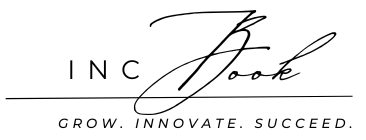2025 Small Business Economic Outlook (Summary)
- Key Trends:
- Digital transformation through AI and cloud-based tools.
- Sustainability as a business imperative driven by consumer demand.
- Adoption of hybrid work models for flexibility and productivity.
- Localized marketing strategies to engage communities.
- Economic Challenges:
- Inflation impacting raw materials, labor, and transportation costs.
- Labor shortages prompting better wages and benefits.
- Supply chain disruptions leading to diversified sourcing strategies.
- Emerging Opportunities:
- Continued growth in e-commerce and digital payment systems.
- Expansion in health and wellness industries.
- Opportunities in tech-driven startups using AI and automation.
- Niche markets offering specialized products and services.
- Strategies for Success:
- Embrace adaptability to respond to market changes.
- Invest in technology to enhance efficiency and customer experience.
- Engage with local communities to build loyalty.
- Adopt sustainability initiatives to attract eco-conscious consumers.
- Future Outlook: Small businesses that innovate and adapt can thrive despite economic challenges by leveraging technology, sustainability, and customer engagement.
As 2025 unfolds, the small business landscape presents a mix of challenges and opportunities shaped by evolving consumer behavior, technological advancements, and economic conditions. Small business owners are navigating through inflation concerns, shifting workforce dynamics, and heightened demand for sustainable practices, all while seizing growth opportunities in emerging markets.
Key Trends Shaping Small Business in 2025
- Digital Transformation
- Technology adoption remains a critical driver for small businesses. From AI-powered customer service tools to cloud-based management systems, businesses are leveraging digital solutions to enhance efficiency and improve customer experiences.
- Focus on Sustainability
- Consumers are increasingly prioritizing eco-friendly products and services, pushing small businesses to adopt sustainable practices. From reducing waste to sourcing ethically, sustainability is not just a trend but a business imperative.
- Hybrid Work Models
- Many small businesses are embracing hybrid work setups, offering employees flexibility while maintaining productivity. This approach also allows businesses to tap into a global talent pool.
- Localized Marketing Strategies
- Small businesses are increasingly focusing on hyper-local marketing, leveraging social media and local partnerships to build community engagement and drive sales.
Economic Challenges
- Inflation Pressures
- Rising costs for raw materials, transportation, and labor are squeezing profit margins. Small businesses are exploring ways to mitigate these pressures through strategic pricing and cost-cutting measures.
- Labor Shortages
- Many small businesses are struggling to attract and retain talent. Competitive wages, improved benefits, and employee wellness initiatives are becoming essential for workforce stability.
- Supply Chain Disruptions
- Ongoing supply chain challenges are compelling small businesses to diversify suppliers and explore local sourcing to maintain operations.
Emerging Opportunities
- E-Commerce Growth
- The e-commerce boom shows no signs of slowing down. Small businesses that invest in online storefronts, digital payment options, and targeted online advertising are reaping significant rewards.
- Health and Wellness Industry
- As health consciousness grows, opportunities abound for businesses in fitness, nutrition, and mental health support services.
- Tech-Driven Startups
- Innovations in AI, automation, and data analytics are enabling new business models and enhancing operational efficiency.
- Niche Markets
- Small businesses focusing on specialized products or services, such as artisanal goods or tailored experiences, are capturing consumer interest.
Strategies for Success in 2025
- Adaptability
- Small businesses must remain agile, quickly adapting to market changes and consumer needs.
- Investment in Technology
- Embracing digital tools and platforms is essential to stay competitive and meet customer expectations.
- Community Engagement
- Building strong relationships with local communities fosters brand loyalty and drives repeat business.
- Sustainability Initiatives
- Demonstrating a commitment to sustainability not only attracts eco-conscious customers but also aligns with broader societal goals.
Despite economic challenges, 2025 offers numerous growth opportunities for small businesses willing to innovate and adapt. By leveraging technology, embracing sustainability, and focusing on customer engagement, small businesses can thrive in this dynamic landscape.
